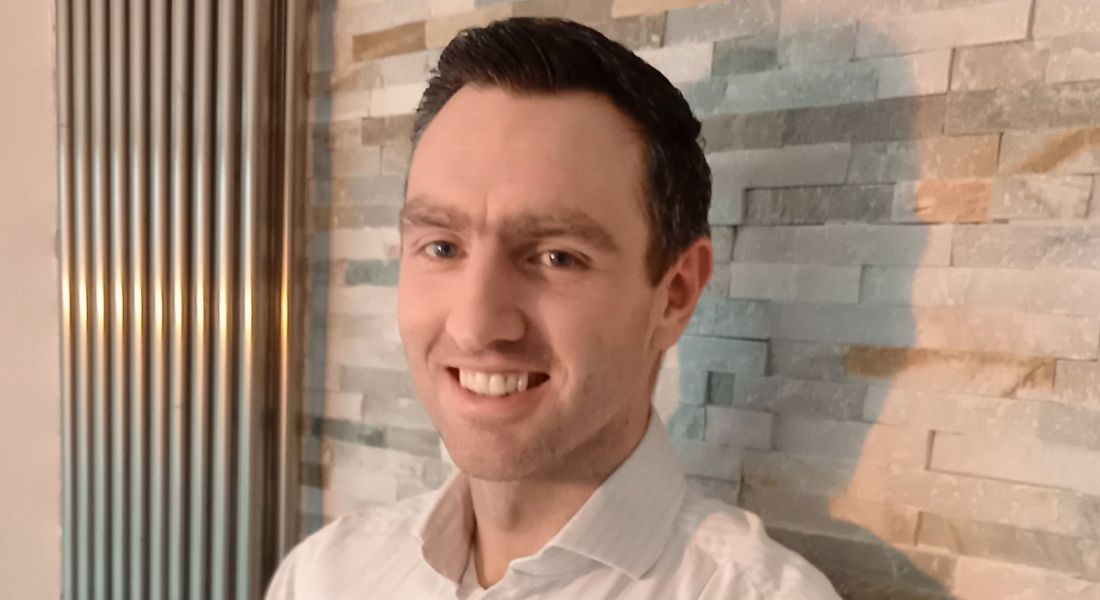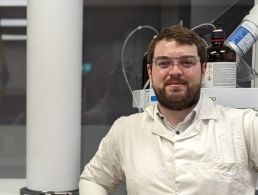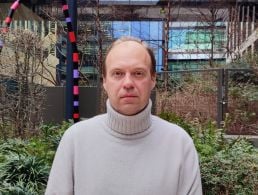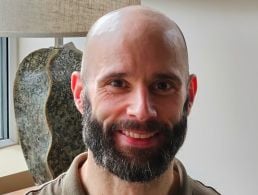Henkel’s Peter O’Sullivan explains how engineering has changed over time and why communication is more important than ever.
Throughout Engineers Week, we’ve heard from a wide variety of people working in engineering, particularly from the software and data side of things.
One thing that seems to be common among all engineering disciplines is that roles are constantly evolving. That is also the case for Peter O’Sullivan, a packaging engineering manager working for Henkel Adhesives Europe.
Henkel manufactures chemical and consumer goods and has three sites in Ireland, including a 3D printing hub in Tallaght and an adhesives manufacturing site in Ballyfermot.
O’Sullivan told SiliconRepublic.com about a typical day in his role and how engineering jobs have changed as his sector has evolved.
‘In today’s world, people have less acceptance and appreciation for how long things take’
– PETER O’SULLIVAN
If there is such a thing, can you describe a typical day in the job?
One of the best things I have found about working for Henkel is that no two days are the same. I work with such a diverse group of internal stakeholders from both commercial and operational sides of the business as well as R&D colleagues.
I could honestly claim that I come across something new I have never dealt with before on a bi-weekly basis. Having said that, I have a very structured approach to underpin how I manage my team.
We use a detailed, centralised project list to monitor, manage and prioritise our workload. There are a lot of calls on Teams for specific ongoing projects and initiatives on a daily basis and of course unforeseen challenges that can crop up at any given time.
I actively use the task list in Microsoft Outlook so that things do not fall between the cracks.
What types of engineering projects do you work on?
My area of responsibility covers all of the packaging we use for our finished goods across nearly 60 production sites for our adhesives business.
The types of projects we work on are supporting both day-to-day business (qualification of alternative sources, solving quality issues, cost reduction) and more strategic mid- to long-term initiatives (innovation, sustainability and complexity reduction).
Personally, I particularly enjoy being involved in projects that involve real change. Whether it’s radically improving something from the way it was before or switching to a more sustainable material that lowers our carbon footprint, these bring the highest levels of satisfaction for me.
What engineering skills do you use on a daily basis?
The basic function of any engineer is problem-solving, so this is the primary skill used on a daily basis. No surprise there.
I also find that the strong analytical capabilities are very useful in a management role. They support me in taking in a lot of information and deriving a decision on the appropriate path forward very quickly.
I am very action-oriented, because I strongly believe things will not just go away if you do nothing. Inevitably, they will come back.
Being naturally inquisitive also allows you to get to the nub of an issue as the more questions you ask the more likely you are to get past the agenda or slant you are being presented.
These are things I never would have expected when I think back to when I first entered the workforce.
What are the hardest parts of engineering?
The hardest part is the relentless squeeze on timelines. In today’s fast-paced, e-commerce-driven world, people have less acceptance and appreciation for how long things take.
The infamous cost-quality-timeline triangle still applies, and you cannot change the laws of physics and chemistry. But many people feel that if they challenge assertions enough they will get the answer they want – I blame Steve Jobs for that one.
Sometimes, you have to make a judgement on the right selection based on the information you have and not wait for all the data, which is completely outside the comfort zone of engineers.
You also need to balance your passion and appreciation for the technical side of things with the need to communicate effectively in the context of what is important to others.
A hundred years ago, engineers were revered. In today’s world, technical and scientific knowledge is questioned and mistrusted and so has been devalued somewhat. Therefore, you need to be able to boil down presentations, reports and summaries to simple messages and connect them to the bigger picture. Otherwise, you will never get buy-in to what you are trying to achieve.
Do you have any productivity tips that help you through the day?
I have found saying ‘no’ the most important and effective tip. Conscientious engineers are drawn more to ‘yes’ because we like to solve problems, so then you can easily fall into the trap of taking on too much, which can reduce productivity but also affect the quality of outcomes.
The other one is to take care not to fall down rabbit holes – areas of interest that you get so lost in that you forget to address more- urgent topics.
What skills and tools are you using to communicate daily with your colleagues?
I find Microsoft Teams great for quick communication on topics and informal discussions. It avoids clogging people’s inboxes with additional e-mails.
What do you enjoy most about working as an engineer?
Well, I am in management now so I can’t really say I work as an engineer. Either way, I think the answer is the same.
Whether you are solving a problem or getting someone promoted, we all want to feel like we make a difference and ultimately that is the thing anyone enjoys most about their work.
What advice would you give to someone who wants to work in engineering?
I would say it’s advisable to find an area of interest to you that is specialised and in short supply so that you are always valuable and have choice options.
I studied an area that had 100pc employment opportunities for graduates and now, 23 years later, it is hard to fill positions in the developed world for people with the right knowledge and skills.
Also, I would say that an inquisitive mind is very valuable for new engineers coming into the workforce. Often, fresh eyes with no historical baggage can ask the most insightful and obvious question that no one else will have thought o,f which can lead to breakthroughs and innovation.
Don’t miss out on the knowledge you need to succeed. Sign up for the Daily Brief, Silicon Republic’s digest of need-to-know sci-tech news.




